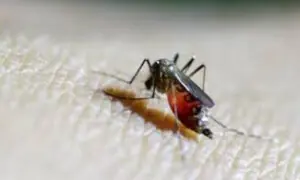'Liveable future' on Earth at risk, UN climate report warns
4 min readA landmark UN report warned on Monday that time had nearly run out to ensure a “liveable future” for all, detailing a horrifying “atlas of human suffering” and warning that far worse was to come.
Species extinction, ecosystem collapse, insect-borne disease, deadly heatwaves and megastorms, water shortages, reduced crop yields — all are measurably worse due to rising temperatures, the Intergovernmental Panel on Climate Change (IPCC) said.
In the last year alone, the world has seen a cascade of unprecedented floods, heatwaves and wildfires across four continents.
Such events will accelerate in coming decades even if the fossil fuel pollution driving climate change is rapidly brought to heel, the 195-nation IPCC warned.
As nations struggle to bend the curve of carbon dioxide emissions downward, they must also prepare for a climate onslaught that in some cases can no longer be avoided, the report made clear.
For UN chief Antonio Guterres, it stands as a “damning indictment” of failed leadership that he described as nothing short of “criminal”.
“The world's biggest polluters are guilty of arson of our only home,” he said.
Even Russia's invasion of Ukraine cannot distract from the truths laid bare in the 3,600-page report and its summary for policymakers, said US Secretary of State Antony Blinken.
“The international community must urgently continue to pursue ambitious climate action, even as we face other pressing global challenges,” he said in a written statement.
Svitlana Krakovska, who headed Ukraine's delegation, spoke passionately at the conference's final virtual plenary about the link between conflict and global warming.
'Root' of war and warming “Human-induced climate change and the war on Ukraine have the same roots — fossil fuels — and our dependence on them,” she said.
Among the report's key takeaways was the intertwined fates of human and natural systems.
It stressed that climate change cannot be tamed unless degraded forests and oceans that stock carbon are restored and protected; and the ecosystems on which life forms depend for clean water, air and soil will not survive intact in a world of runaway warming.
The report made clear that a viable future rests on a knife's edge.
Some dire impacts are already irreversible, such as the likely demise of nearly all shallow water corals.
Other points-of-no-return lie just beyond the Paris Agreement's aspirational target of capping global warming at 1.5 degrees Celsius above preindustrial levels, the report warned.
The 2015 treaty enjoins nations to hold the increase in temperatures to “well below” 2°C, but recent science has left no doubt that a 1.5°C threshold is far safer.
Even in optimistic scenarios of rapid reductions in carbon pollution, projections of climate impacts are sobering.
Up to 14 per cent of land species face a “very high” risk of extinction with only 1.5°C of warming, the IPCC said, bolstering calls for conservation of 30 to 50pc of the world's land and ocean territory.
The threat grows with every fraction of a degree.

Adaptation By 2050 there will be more than a billion people in coastal areas highly vulnerable to storm surges amplified by rising seas by 2050. Per usual, the poorest will often be the hardest hit.
An additional 410 million people will be exposed to water scarcity from severe drought at 2°C of warming, and up to 80m will be at risk of hunger by mid-century.
By 2100, around $10 trillion of assets will be in flood-prone coastal areas in a moderate greenhouse gas emissions scenario, according to the report.
The IPCC assessment — the sixth since 1990 — highlights the need to cope with unavoidable climate impacts on almost every page.
Overall, the IPCC warns, global warming is outpacing our preparations for a climate-addled world.
“For people in Africa living on the front line of climate change, it is adapt or die,” said Peter Verkooijen, CEO of the Rotterdam-based Global Centre on Adaptation.
The report also spotlights irreversible and potentially catastrophic changes in the climate system known as tipping points, triggered at different thresholds of global heating.
These include the melting of ice sheets atop Greenland and the West Antarctic that could lift oceans 13 metres; the morphing of the Amazon basin from tropical forest to savannah; and the disruption of ocean currents that distribute heat across the globe.
“The cumulative scientific evidence is unequivocal: Climate change is a threat to human wellbeing and planetary health,” the report concluded.
Further delays in cutting carbon pollution and preparing for impacts already in the pipeline “will miss a brief and rapidly closing window of opportunity to secure a liveable and sustainable future for all”.
For the latest news, follow us on Twitter @Aaj_Urdu. We are also on Facebook, Instagram and YouTube.


























Comments are closed on this story.